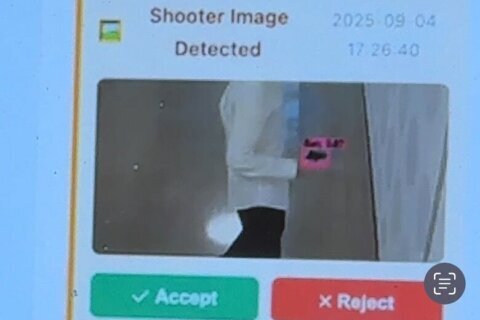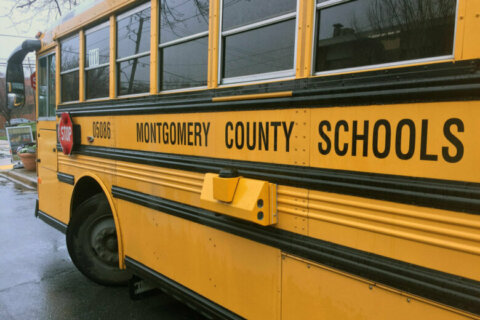Like other schools in Montgomery County, Maryland, Seneca Valley High School has seen more fights during the first weeks of classes than in years past.
One recent football game at the Germantown school had to be stopped when a series of fights broke out.
Seneca Valley principal Marc Cohen said students are coming back to in-person learning after a year of virtual instruction that cut them off from classmates and in-school supports. And some students, he said, have lost parents and other close relatives to COVID-19.
“Our kids have been through a great deal of trauma over the last two years,” Cohen said.
“I think that probably you can make some connections between those challenges and many of the stories we’ve heard in the news,” he said, referring to reports of fights and assaults across the school system.
So when some Seneca Valley parents proposed forming a group of volunteers made up of dads to supervise students during lunch time and after school, Cohen said he started working with them to organize the program. A Louisiana school district initiative called “Dads on Duty” serves as the model for the program.
But Cohen is quick to make clear that the program is not designed to replace the in-school presence of the Montgomery County Police Department’s now-defunct school resource officer (SRO) program.
“I don’t have an interest in dads patrolling, or parents patrolling the school,” Cohen said. “This is not about policing. We have school security. We have police in our community.”
Instead of SROs, the Montgomery County Police Department has created positions of “community engagement officers” who work outside schools, but are first to respond when called upon by principals and administration officials.
Cohen explained that when the dads report for duty as volunteers in cafeterias and after school, they’ll be “providing positive energy and support” mentoring students. And their role, he said, will be to serve as “a sounding board” and “a shoulder to lean on for our kids.”
The volunteers will have to undergo training, according to Cohen.
“There is some vetting that goes on” when volunteers work in schools. That will include training in identifying child abuse and neglect and understanding the legal reporting requirements when abuse is suspected. There would also be background checks, including being fingerprinted, if they are expected to be alone with students, said Cohen.
When told about the program, Montgomery County Executive Marc Elrich wondered aloud why the school system would limit the role of volunteers to dads.
Cohen was asked about that.
“This meeting in particular is geared toward our dads,” Cohen said. But “we’re an equal opportunity school; we’ll take help from anybody who is interested and willing.”
Cohen said he has heard from women who are interested in getting involved in some way in the program, and he invited them to the first organizational meeting, which was scheduled for Thursday evening.
Students have been receptive to the idea so far, said Cohen.
“They know that the more adults who are looking out for them, the more adults who they can turn to for advice, for counsel, for just learned experiences, the more likely they are to make good choices.”
While the impetus for the program may have been negative — the fights and acting out that have happened over the start of the school year — Cohen said there’s also been a positive development: the community’s willingness to rally around kids who have weathered the pandemic and its fallout.
“In a couple of weeks once the program has been up and running for a while,” Cohen said, “I’ll be able to tell you more directly how the kids are responding and how the parents are doing.”








